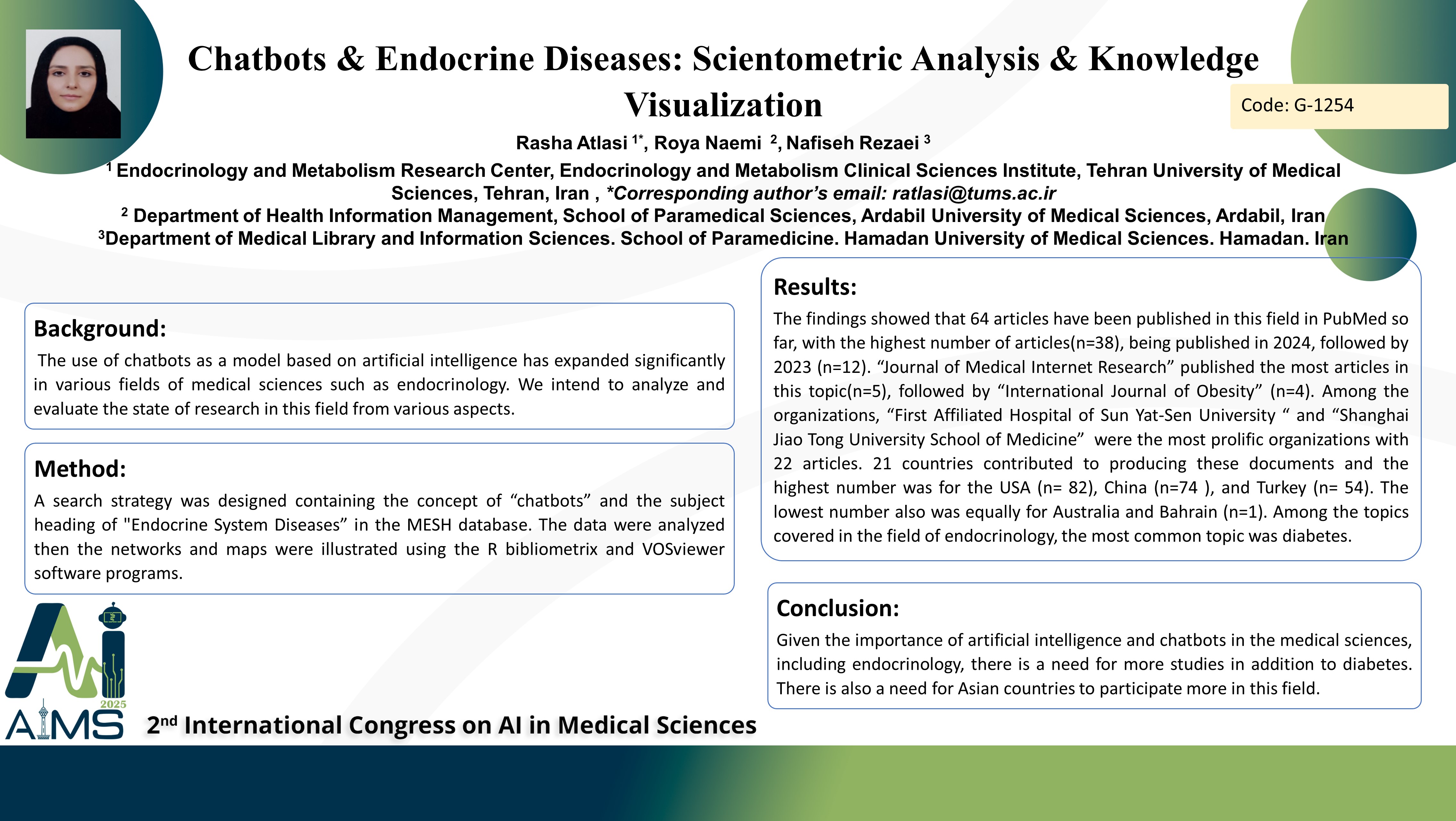Chatbots & Endocrine Diseases: Scientometric Analysis & Knowledge Visualization
Code: G-1254
Authors: Rasha Atlasi * ℗, Roya Naemi , Nafiseh Rezaei
Schedule: Not Scheduled!
Tag: Intelligent Virtual Assistant
Download: Download Poster
Abstract:
Abstract
Background: The use of chatbots as a model based on artificial intelligence has expanded significantly in various fields of medical sciences such as endocrinology. We intend to analyze and evaluate the state of research in this field from various aspects. Methods: A search strategy was designed containing the concept of “chatbots” and the subject heading of "Endocrine System Diseases” in the MESH database. The data were analyzed then the networks and maps were illustrated using the R bibliometrix and VOSviewer software programs. Results: The findings showed that 64 articles have been published in this field in PubMed so far, with the highest number of articles(n=38), being published in 2024, followed by 2023 (n=12). “Journal of Medical Internet Research” published the most articles in this topic(n=5), followed by “International Journal of Obesity” (n=4). Among the organizations, “First Affiliated Hospital of Sun Yat-Sen University “ and “Shanghai Jiao Tong University School of Medicine” were the most prolific organizations with 22 articles. 21 countries contributed to producing these documents and the highest number was for the USA (n= 82), China (n=74 ), and Turkey (n= 54). The lowest number also was equally for Australia and Bahrain (n=1). Among the topics covered in the field of endocrinology, the most common topic was diabetes. Conclusion: Given the importance of artificial intelligence and chatbots in the medical sciences, including endocrinology, there is a need for more studies in addition to diabetes. There is also a need for Asian countries to participate more in this field.
Keywords
Generative Artificial Intelligence, Chatbots, ChatGPT, Endocrinology
